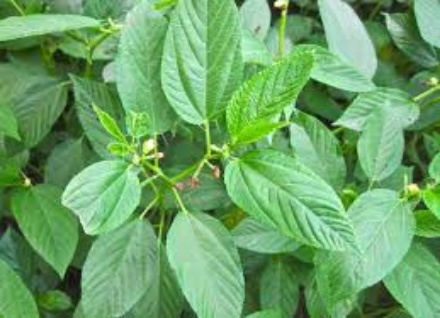Popular Yoruba Herbs: English Name & Uses
Before the coming of the orthodox medicine which we know as the English medicine, each and every tribe had their own herbs which they use in treating diseases.

Some of these popular herbs are used across ethnic groups while some are more common in some places.
While some of these Yoruba herbs that are common in some places, they are known with different names depending on area they are located.
This means you might know a particular herb in Igbo and someone will be talking about that same herb and it will seem to you as if that person is wasting his or her precious time.
This article will let you know the English names of common herbs in Yoruba land alongside their uses.
Mint Leaf (Ewe Minti)
Mint leaf is known as Ewe Minti in Yoruba. It is a very common and popular herb. Mint is a popular herb that can be used fresh or dried in many dishes and infusions.
Mint oil is often used in toothpaste, gum, candy, and beauty products. Some of the health benefits of mint includes relieving someone of allergies and pains, it helps prevent against gastric ulcer. It is good for oral health as well as skin among other benefits.
Spinach (Efo Tete)
Efo Tete is the English name for Spinach. This green plant is used among various cultures and had come along way as a herbal plant. To some, they don’t even know of it health benefits.
They only know it is edible and it appeals to their taste bud. If you are one of those persons, just know that spinach possible health benefit includes cancer and asthma protection, reduction of blood pressure, diabetes management and promotion of healthy skin, hair and bone.
Parsley (Effirin)
The English name of Effirin, a common herb in Yoruba is Parsley.
Parsley benefits the body in many ways and is considered a naturally effective treatment for a wide range of symptoms and diseases.
Derived from the petroselinum plant, parsley and parsley essential oil have been used as a natural detox remedy, diuretic, antiseptic and anti-inflammatory agent for centuries in folk medicine.
Today, fortunately, many studies back up health claims about parsley that traditional populations have believed for many years.
Cayenne Pepper (Ata Gun Gun)
Cayenne pepper popularly known as Ata gun gun in Yoruba language is a popular herb not only among the Yorubas but other cultures in Nigeria and the world at large.
Cayenne pepper benefits are numerous and effective; it’s used to help digestion, including heal upset stomach, slow intestinal gas, stop stomach pain, stop diarrhea and as a natural remedy for cramps.
It’s also used for conditions of the heart and blood vessels – including to improve poor circulation, reverse excessive blood clotting, lower high cholesterol and prevent heart disease.
Cinnamon (Oloorun)
The popular cinnamon herb is known as Oloorun in Yoruba. It health benefits includes; high source of Antioxidants, contains Anti-inflammatory properties, promotion of heart health and help fight diabetes and lower the risk of cancer among others.
Turmeric (Atale Pupa)
Atale Pupa is the Yoruba name for Turmeric. This herb increases the antioxidant capacity of the body, lower risk of brain damage and heart disease.
It can help prevent cancer and could delay aging and fight age-related diseases among others.
Basil (Basil)
The Basil herb is also known as Basil among the Yorubas. Basil of course, is used to add flavor to a variety of recipes, but what may surprise you is the many benefits of basil that make it well-known for its immunity-enhancing properties.
Basil extract, or basil essential oil, is proven to help prevent a wide range of health conditions, which makes it one of the most important medical herbs known today.
Its health benefits includes, it serves as an anti-inflammatory and antioxidant, it fight against cancer, and it is a pain and fever reliever, it prevent diabetes, help boost the immune system, protects the liver and also used as an anti-stress solution.
Bay Leaf (Bay Bunkum)
The English name of the Bay leaf is Bay Bunkum. Bay leaf is packed with nutrients.
It eases joint pain from arthritis, provide immune support, help in sugar level balance, aids in digestion, reduce congestion and help in improving scalp health.
Marjoram (Efo Ewuro)
Marjoram, known as Efo Ewuro in Yoruba, can be taken orally in a more concentrated medicinal form or used topically and in aromatherapy as an essential oil.
The inhalation of marjoram essential oil actually has been shown to calm the nervous system and, in turn, positively impact your cardiovascular system by improving blood flow and lowering blood pressure.
It’s been used to treat coughs, runny noses, gallbladder issues, digestive problems, depression, dizziness, migraines, nervous headaches, nerve pain and paralysis as well.
Celery (Seleri)
The Yorubas call the celery herb seleri. This is also a popular Yoruba herb that helps in lowering inflammation, reducing blood pressure, reducing risk of cancer and help in preventing age-related vision loss.